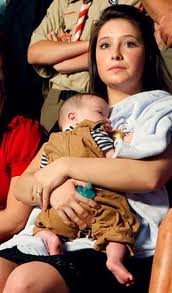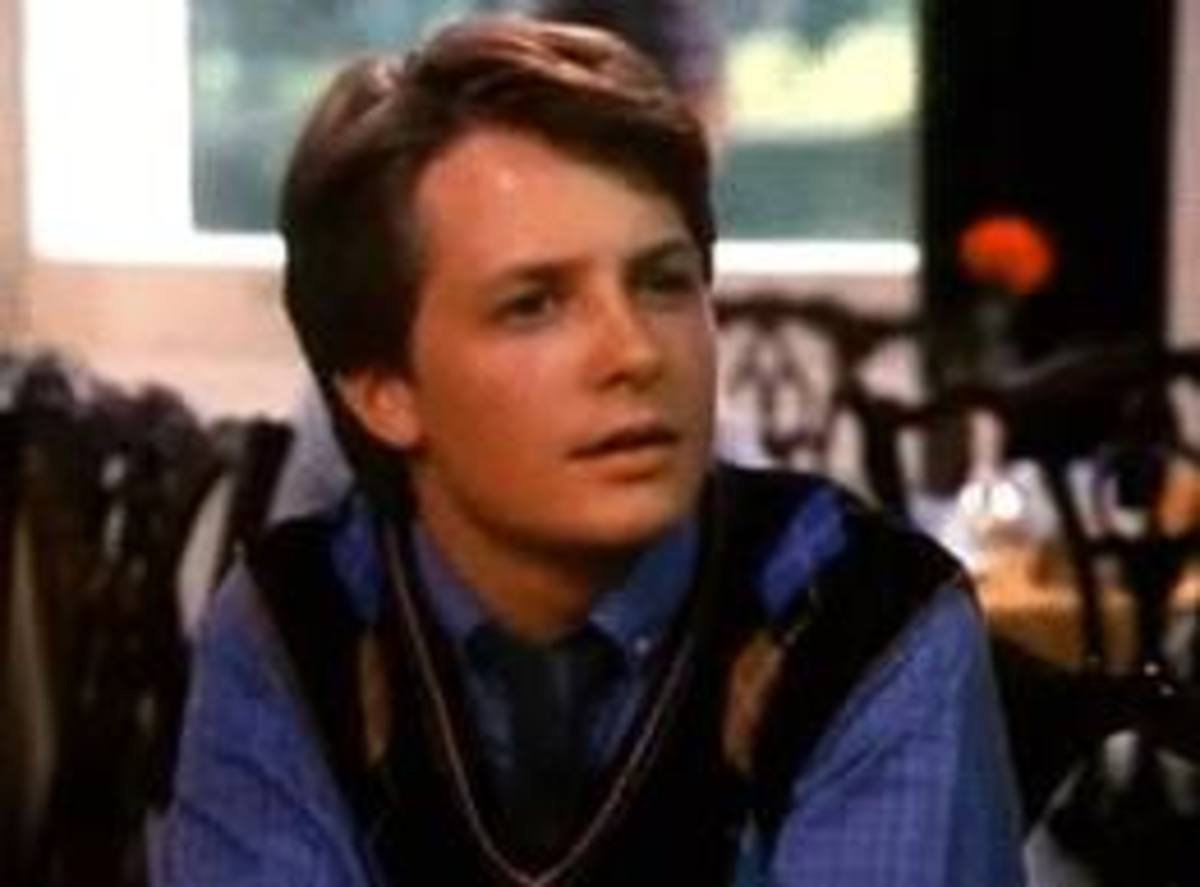The Oldest Child In The Large And Very Large Family, Part 2/2

Treated the MOST Differentially, Even Disparately of ALL Large Family Birth Orders



Resentment, Even HATRED of Parents




Very Little or NO Individual, Alone or Me Time



Curtailed or RUINED Goals, Dreams, & Opportunities



Neverending: From Dawn To Dusk, It's 24/7/365
This is part 2 of this hub inspired by my request Why do oldest children tend to be cast aside and not paid sufficient attention in multichild families? The life of the oldest child in large and very large families ( 6 and more children per family) can be described as extremely precarious and daunting indeed. His/her parents have extreme high expectations of him/her. He/she is expected to assume the bulk of the familial responsibilities. He/she oftentimes is mature at an earlier than his/her younger siblings at similar ages. It is not unusual for the oldest child of a large to very large families to start assuming tough responsibilities while still a child.
XI. RESENTFUL of Responsibilities THRUST Upon Him/Her
Many oldest children in large and very large families detest such responsibilities being thrust upon him/her. This goes particularly for the caretaking duties. They reason why should they have responsibility for their younger siblings, adding that it is THEIR PARENTS who had the children, not THEM. They see the utter irrationality of their parents continuously producing children that they possibly cannot take care off by themselves. They further reason that intelligent people have the amount of children that they can reasonably take care of, wondering what is amiss with their parents!
Many oldest children actually resent their parents for placing them in quasiparenting roles at an age when they should be free to explore and enjoy their formative childhood and adolescent years. In their minds, the time spent raising their younger siblings should be spent having fun/friends/dates, being alone/having private time, and/or just being a carefree kid/teen. It is the angst of many an oldest child in such families that they were MORE THE PARENT to their siblings than the parents themselves. In large to very large families, the younger children remember that it was the OLDEST CHILD who raise them, not the parents.
When you hear people state that they HATED being in a large and very large family, it is oftentimes the oldest and/or older children. Of course, why not? They were the ones who had all the negatives regarding being in a large to very large family. They had to assume an overwhelming percentage of the responsibilities-chores and being the caretaker.
XII. Assuming ADULT ROLES
If the oldest child is a son, chances are that he has to take an afterschool and/or other type of job to supplement the family income. The socioeconomic status of the average large and very large family is what one could describe as impoverished or near it. Such oldest children, both sons and/or daughters, must work jobs to supplement the family income. There are parents of large and very large families who pull their oldest children out of school to stay home and care for the younger siblings. Still other parents of large and very large families take their children out of school to work full time as there are many mouths to feed and support.
This translates into the fact that secondary and/or tertiary education is a rarity for the average oldest child in large and very large families. He/she is often viewed as a family mascot do the bidding of the respective parents and/or younger siblings. It has been said ad infinitum that large to very large families are totally unfair to the oldest child. Yes, the oldest child in large and very large families have all the minuses and not the pluses. He/she is in the most oppressive of all situations. He/she is the indentured servant so to speak i.e. as long as he/she lives with the parents, he/she must fulfilling his/her duties as the oldest child whatever they are, may be, and/or will be, no questions.
XIII. Very Little or No INDIVIDUAL nor PRIVATE Time
The concept of having one's own individual life and private time is nonexistent for oldest children in large and very large families. They must constantly be available to their parents and younger siblings. In other words, their lives are compressed, being there for others but seldom and/or never, having "ME" time. Many oldest children in large and very large families have a difficult time considering their own needs as they have been considering others' needs in their formative years.
XIV. Foregoing, Even Abandoning Individual Dreams and Goals
Many oldest children in large and very large families have their career dreams and other means to establish an independent life curtailed and/or stopped because they are needed by the parents and younger siblings. How many oldest children in large and very large families have their dreams destroyed and/or put on the backburner because of the incessant needs of their parents and younger siblings? Think of the many oldest children in large and very large families who had no time to develop meaningful outside relationships and/or marry because they felt that their obligations to their parents and/or younger siblings override their particular desires and wishes. Many oldest children in large and very large families live lives of desperation. Their parents and younger siblings are happy while they are miserable.
An illustration of the oldest child in large and very large families not having their own lives was an Anne Lander's article in THE NEW YORK DAILY NEWS about 15 years ago where a woman, in her 50s, who was the oldest of 9 children stated that she was single because she has to stay home, raising all of her younger siblings and being on call for both her parents and them. She further asserted that she was thrust with so many responsibilities that she did not have her own individual life, adding that her younger siblings had individual lives and could do as they pleased. In essence, this woman sacrificed her life for her parents and younger siblings.
XV. Self-Sacrificing, Even Self-Abnegation to the EXTREME
It is not unusual for the average oldest child in a large and very large family to totally sacrifice his/her life dreams and goals for his/her parents and younger siblings. In their estimation, not to put their parents' and younger siblings' needs before their own is considered to be selfish. It seems that the situation is a one way street with the burden always being placed on the oldest child.
An example of this self-sacrifice typical of oldest children in large to very large families is my mother. My father told me that my mother, the oldest of 10 ten, in her early 20s, worked incessantly overtime yet her clothes were threadbare and shoes worn. He asked my mother what was the problem, she relayed that she had to support her parents and still ever growing family, leaving very little for herself. My father stated that he was totally nonplussed at this. My father then related that my mother became quite incensed when my maternal grandmother was pregnant with the 10th child. Of course, this means that my mother will have to work harder to support her parents and younger siblings, having even less for herself.
Even when my mother married and had me, she still had to financially assist a few younger siblings even though they were capable of supporting themselves. My father told her to stop this as it was totally ridiculous. The oldest child in a large and very large family are extremely responsible regarding their younger siblings even in adulthood. In essence, the dance continues. In fact, many younger siblings of large and very large families assume that their oldest siblings will their caretaker and assume most of the responsibilities into old age. It seems to never let up, not at all.
XVI. Must Learn to ESTABLISH Boundaries
However, there are some oldest children in large and very large families who refuse to be the self-abnegating sacrificer. They assert themselves and establish boundaries. Sometimes, their parents and younger siblings consider their needs and start to assume some of the familial responsibilities, leaving them more freedom to pursue their individual lives. However, if their parents refuse to listen to their concerns, adamantly contending that they as oldest children should assume most of the duties, they either take it upon themselves to have some of the younger children share in the duties or they continue to perform the duties in silence, anticipating the day that they leave home so they no longer have to be at their parents' and younger sibling's beck and call.
XVII. Recapturing What WAS Lost
There are some oldest children in large and very large families who raised their younger siblings that they have no desire to be parents as they were parents enough. Still a few oldest children in large and very large families were so overburdened with responsibilities from early childhood that when they become adults, they want to recapture their childhood and adolescent years, wanting as little responsibilities as possible. Many become quite selfish, placing their needs above all others in rebellion to their early condition to place their needs last. Still, others walk away from their parents and/or younger siblings since the relationship was conditional with an overwhelming burden placed upon them. They find unconditional and more rewarding relationships elsewhere with people who respect/ love them as they are and do not view them as a mascot to do their particular bidding.
Conclusion
In summation, the life of the oldest child in a large and very large family is often filled with onerous obligations and responsibilities. He/she is often pressed into adult duties while in early childhood. This includes chores and quasiparenting duties. The phenomena, the parentified child, applies to many oldest children in large and very large families. It is often they, not the actual parents, who are actually raising their younger siblings, often missing out on their formative childhood and adolescent years.
Many oldest children in large and very large families oftentimes have to either forego and/or sacrifice their own desires, dreams, and wishes because their parents need them to be there for them and younger siblings. While many oldest children in large and very large families suffer in silence, there are others who rebel, establishing boundaries as to what they will and/or won't do. Being the oldest child in a large and very large family is quite daunting indeed and the burden is often placed on him/her. It has been said that large and very large families are unfair to the oldest child. Many oldest children in large and very large families endure conditions which could be considered to be abusive. Children should be free to be children and adolescence and enjoy those years. As has been stated before, if parents bring children into the world, it is THEIR duty to raise them, not their children.
© 2013 Grace Marguerite Williams








